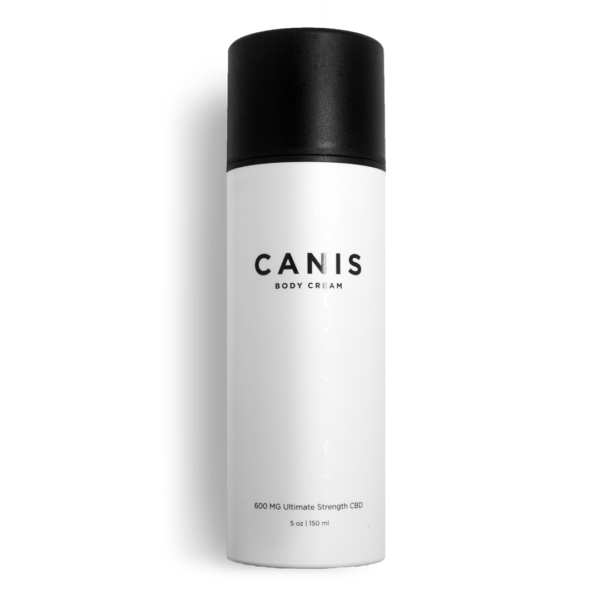Blog
Is CBD Oil Good for Nausea?

Feeling sick, even if you don’t vomit, may have a negative impact on your quality of life. You could be unable to drive, do basic daily chores, or consume food in order to sustain your body. If your symptoms last for more than four weeks, they can have a significant impact on your quality of life. Here’s what you need to know if you’re thinking about using CBD oil for nausea.
Please Note—CBD companies are not permitted to give medical advise and we cannot promise that CBD oil will work well for you. Although we provide the information in this post for educational purposes, we recommend that you consult with your doctor before taking any dietary supplements.
What Causes Nausea?
Nausea is a very unpleasant condition that can strike anybody at any time. Before we get into utilizing CBD oil for nausea, let’s look at the most common causes of nausea. The treatment may differ depending on the cause. The following are the most frequent causes:
- Stress
- Anxiety
- Motion sickness
- Morning sickness
- Phobias
- Migraines
- Food poisoning
- Illnesses such as the flu
- Irritable bowel syndrome
- Prescription medications
- Inner ear problems
- Thyroid disorders
- Chemotherapy
- And more
The majority of the information on utilizing cannabinoids for nausea is focused on marijuana, not hemp-derived CBD oil. The current literature on nausea is limited to reducing chemotherapy-induced nausea and vomiting, which are often unavoidable. There is also marijuana use for treating patients with a variety of disorders, including cancer, HIV, and eating disorders.
When it comes to severe and persistent nausea, however, THC appears to take the lead role when it comes to symptoms alleviation, but it works in tandem with CBD oil and terpenes. Marijuana, in particular strains rich in THC and CBD, has been demonstrated to be more powerful than pills for treating nausea. It may also function in the event of a prescription failure.
However, CBD can provide assistance with nausea if it is not chronic or severe.
Does CBD oil Settle Your Stomach?
You have an internal imbalance if your stomach is upset due to stress or worry. If you’re nervous about flying, speaking in public, or interviewing for a new job, for example. It’s important to identify your nausea triggers since it allows you to take a proactive approach to relax your nerves and settle your stomach.
CBD oil encourages homeostasis, which is a natural phenomenon that helps our body to self-regulate. When you’re worried or tense, your body produces extra cortisol, which is a stress hormone.It’s also possible that you may feel sick or have unpleasant butterflies in your stomach when cortisol ends up in your digestive system.
Taking a proactive approach, including CBD, may help you calm your symptoms by stimulating the homeostasis mechanism.
Is Cannabidiol (CBD) Effective in Reducing Nausea and Headaches?
The majority of the time, nausea and headaches are linked to stress and anxiety. There are several over-the-counter headache medications on the market, but they might cause your nausea to increase. However, CBD oil has been shown in research to be helpful for treating headaches and migraines. The greatest benefits are obtained when patients use it on a daily basis, so be as proactive and consistent as possible.
If you’re like most people, one of the main reasons you get stressed and anxious before a big work deadline is because you never know when it’ll happen. Start your proactive strategy 2 or 3 weeks ahead if this describes you. CBD oil may be used to treat stress, but addressing it requires a multi-pronged approach.
Any combination of the following might be used as part of your stress management plan:
- Massage
- Yoga
- Meditation
- Journaling
- Talk therapy
- Creating a sleep routine
- Remaining physically active
- Improved nutrition
- Minimizing alcohol consumption
- Minimizing caffeine consumption
Is It Possible to Get Nauseous from CBD?
Nausea is a rare CBD oil adverse effect, although it is possible. If you’re already feeling sick to your stomach, determining whether CBD is the cause or if your discomfort is getting worse may be tough.
You may be suffering from a rare CBD side effect if you only become nauseated after using it. Check to ensure your CBD is genuine since it might be the artificial additions that are causing you discomfort.
What Are The Drawbacks And Risks Of CBD?
There are currently no studies or reported cases of hemp-derived CBD overdosing that have resulted in a minor or fatal overdose. This includes data from all over the world, including countries where CBD oil is both legal and illegal.
While there are no instances of overdose, almost everything we consume may have a negative impact. Everyone feels differently about plant-based nutritional supplements, so pay attention to how you feel after taking CBD oil. At lower dosages (less than 3,000 milligrams per day), side effects like headaches and sleeplessness are uncommon. However, when taken in extremely high doses (more than 20,000 milligrams per day), these adverse effects may occur:
- Dizziness
- Diarrhea
- Dry mouth
- Fatigue
- Nausea
- Low-blood pressure
- Reduced appetite
- Negative interaction with prescription medications
What's the best way to pick out CBD products?
Not all CBD is created equal, and not all CBD products claim to be. Here’s what you need to know about making an educated CBD oil purchasing decision:
Hemp oil and hemp seed oil—many hemp seed oil brands use deceptive marketing to persuade you they’re a CBD product. Hemp seed oil, on the other hand, is a culinary oil that does not contain measurable milligrams of CBD oil per serving. If the label doesn’t specify the amount of CBD in each serving, it’s probably hemp seed oil
Isolate vs. Full Spectrum—once you’ve identified a genuine CBD oil, the difference between isolated CBD and full-spectrum CBD becomes important. Terpenes are present in full-spectrum products, which we’ll get to later. Isolated products simply contain CBD, whereas full-spectrum oils include terpenes.
Terpenes are aromatic chemicals produced by the glands of all plants, herbs, and flowers. They account for the distinctive fragrance of flowers and natural essential oils. Terpenes work in tandem with CBD to develop a synergy effect. CBD oil connects the endocannabinoid system to promote equilibrium, while terpenes bind it for improved effectiveness.
Organic vs. Non-Organic—few CBD brands are USDA-certified organic. Buying an organic product assures quality and purity. Choosing organic means you can be sure that your product isn’t adulterated with artificial additions that dilute it.
The milligrams of CBD oil in each serving is often represented by the following statement: “milligrams per serving—we talked about this in the hemp seed oil section, but any reputable CBD brand clearly labels how many milligrams of CBD is in each bottle or product and how many milligrams per suggested serving. For most goods, this information can be found on the back of the bottle or in the retail product description.
Third-Party Lab Tested—After it’s made, reputable brands send their products to a 3rd party lab for purity testing. They’ll also happily provide you with the results of these tests if you’re concerned about anything.
Alternative Anti-Nausea Treatments
Nausea can be difficult to treat, so you’ll have to tailor your approach. Talk with your doctor about natural treatments, especially if you’re pregnant or nursing. This might include using CBD oil for nausea if you aren’t pregnant or breastfeeding, as well as any of the proactive and reactive alternative therapies listed below:
Dietary Modifications—You could try peppermint tea, ginger tea, or sparkling water to ease your discomfort. Also, reduce your sugar intake by eating less processed and greasy foods. If it’s difficult to eat solid food because of a stomachache, stick to bland meals such as dry toast, ordinary eggs, mashed potatoes, creamy soup, gelatin, plain crackers, and pretzels.
Hypnosis—Hypnosis must be performed by a licensed and certified practitioner. It may help to relieve a variety of physical ailments, including nausea. If you think that hypnosis sounds too woo-woo, it’s doubtful that it will work because you must be open and receptive.
Relaxation Techniques—There are so many different types of relaxation treatments and approaches to pick from, including acupressure, massage, yoga, guided meditation, solo meditation, deep breathing exercises, stretching exercises, sleep and relaxation applications (and more).
Sound Therapies—You could work with a music therapist or listen to music that reduces your anxiety. This may be classical music, natural sounds, chanting, gongs, chimes, binaural beats, and more. Also, consider live sound therapy sessions such as live gongs and chimes so you can experience the same vibrations as them.
Biofeedback—Chronic stress, anxiety, or nausea can benefit from biofeedback. Biofeedback is most often done by a trained therapist in conjunction with talk therapy; it is not appropriate for everyone. It’s a way to teach your brain new behaviors. You may need to figure out the source of your stress and anxiety before you begin.
Systematic Desensitization—Systematic desensitization can be used to cure nausea or headaches that are brought on by anxiety. This treatment, like other methods of behavioral therapy, is not suitable for everyone and must be done by a professional.
CBD products are available through Canis CBD oil if you’d want to utilize it as a preventative measure against stress or anxiety-induced nausea. We provide oral and topical formulations that are all broad-spectrum.






